#and just like have a picnic there
Explore tagged Tumblr posts
Text
thinking abt asking my crush out near valentine’s day but i gotta figure out if im like sure enough and also figure out an elaborate way to confess because im incapable of doing things normally
#crep lore#look i know it sounds a bit creepy#but we’ve talked abt going urban exploring a few times#so i was thinking i could like#find some place abandoned#preferably in a field or something#def not closed off or where squatters are likely to be#and just like have a picnic there#but i learned you’re not supposed to bring weapons when going urban exploring#which rlly sucks cuz idk if id feel safe without one#like mann i gotta bring pepper spray to make sure i dont get attacked#now that i think about it. going to abandoned places defenseless might not be super romantic#it is to me#and maybe to them too#general consensus is i don’t like the government because they cause the issues with this plan#problem one is police detaining us for exploring abandoned places#problem two is squatters only exist in the first place because of the homeless epidemic#sorry that got political
3 notes
·
View notes
Text
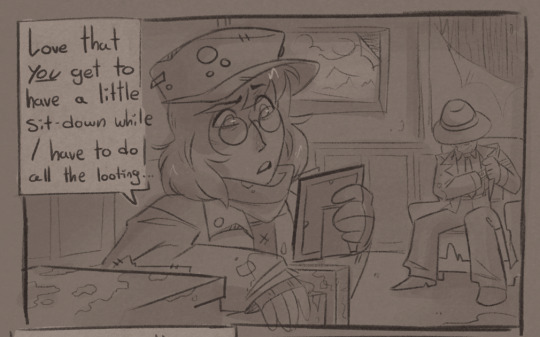
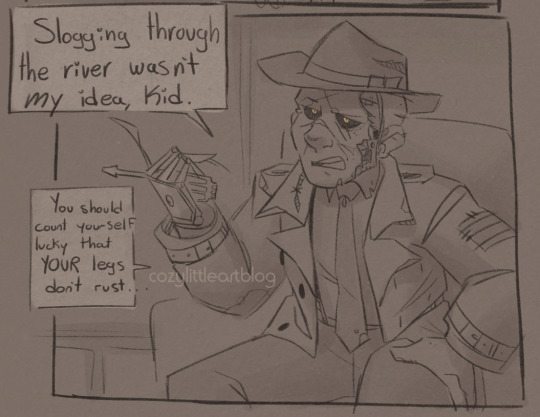
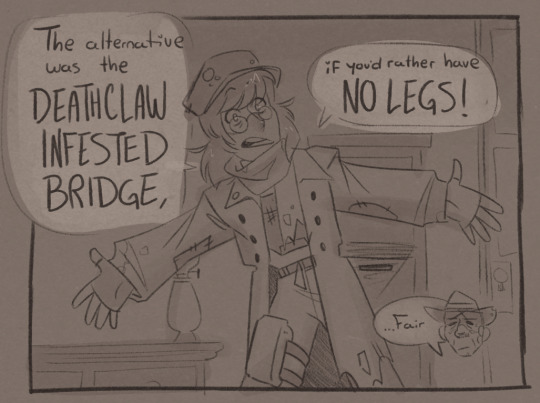
8th annual nick valentine post! fallout 4 npcs Love sitting. they'll see a chair and ask "is anyone gonna sit here" and not wait for an answer. its like nick is on a personal quest to sit in every chair in the commonwealth. if he sees a chair its on sight
its because his joints are bad, obviously. he's like 140
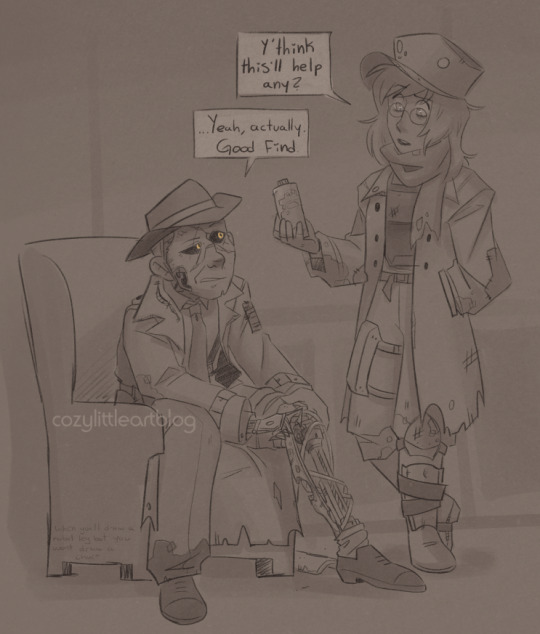
#fallout#fallout 4#nick valentine#fo4#art#doodles#comic#fallout soup#do not tag sole survivor or ship please and thank u (she is not the protag!)#once again i see your weird video game quirks and bugs and raise you headcanons for all of them#i like to think about all the stuff that happens in the game besides the literal gameplay#stopping to sleep places or to shelter from the rain. tending to injuries. or just synth maintenance#having a picnic in an abandoned department store :)#the general realities of living in the commonwealth#anyway poor ol peepaws got fucking robot arthritis can we get Fs IN THE CHAT
1K notes
·
View notes
Text


Gege is still recovering and goes on extended hiatus but turns out was secretly drawing and now releasing this new official art of Yuuji and Choso! 😭 they look so relax and happy, outside having picnic together! Choso is napping on the rattan mattress while smiling and Yuuji is waving at the cameraman. Between them two cans of beverage. The left one a can of tea and the other one written either Pokka or Ponka? (Pokka Sapporo is a JP's manufacturer of canned and bottled beverages)
This is an official art by Gege Akutami that will be made into lenticular bookmark as natsucomi freebie in (participating) bookstores coming July
#I KNOW THEY ARE LIVING TOGETHER HAPPILY EVER AFTER WHAT WE SAW IN MANGA IS FANFIC CZ GEGE LOVES THEM TOO MUCH TO SEPARATE THEM#JUST ADMIT IT GEGE! YOU HAVE SOFT SPOT FOR THESE TWO ARENT CHA NO NEED TO BE SHY! WE CAN ALREADY SEE IT AS CLEAR AS DAY#WHY ELSE YOU MADE CHOSO AND YUUJI'S SCENES AND FLASHBACKS BEFORE LEAVING SO DRAMATICALLY BEAUTIFULLY TRAGIC LIKE THAT#thank you so much for this new official art omg 😭😭😭#look at what comes thru my gc I got triple gifts choso-related things today what did I do to deserve these surprises#jujutsu kaisen#official art#choso#yuji itadori#jjk choso#itadori yuji#itadori yuuji#smiling brothers go on relaxing picnic after shooting Choso's last scene the angstiest scene in the drama series Called JJK#gege akutami#choita
297 notes
·
View notes
Text
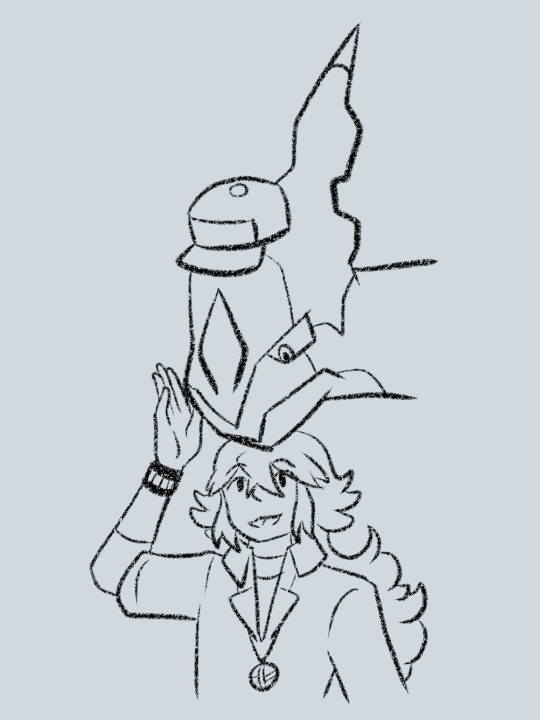
friends :)
#pokemon#pokemon black and white#pokemon bw#n harmonia#pokemon n#natural harmonia gropius#zekrom#clai's art#aughhh i hate that n parts with his dragon in bw2 thats your friend who you've been with for two years now! you dont have to give it away!!!#it chose You for a reason!!!!!!!#i get they gotta give zekrom to the player but augh. this is stupid#anyway. i like when legendaries are depicted as like. just as affectionate as any other pokemon#they're gods and deities and all-powerful but they're still supposed to be your friend#probably why i like the bike lizards so much bc they have their moments of being all powerful But#you still get to feed them sandwiches and play ball with them at picnics and its cute :)
180 notes
·
View notes
Text
My son but adult

+



Also omg happy gay month my little gays!! So proud of u all! Keep up the gay work!! 🏳️🌈👩❤️💋👩👨❤️💋👨👩❤️💋👩👨❤️💋👨👩❤️💋👩👨❤️💋👨🏳️🌈




#sorry for being dead I’ve been busy moving so haven’t had the time to draw 😢#camellia sans#dreamberry ship child#camellia#how many times have I drawn skeletons in floppy hats with picnic baskets??? no clue#I’m just so creative like that Ik ik 😎
214 notes
·
View notes
Text
charmed life's ending is so funny to me because, without even going into the fact that it's confirmed the scary intimidating enchanter cat's been terrified of the whole book is straight up a government official and the attack on the garden was basically a january 6 esque coup run by magic libertarians who are mad that they arent allowed to colonize and exploit other worlds -
without even going into THAT, janet is like "hey ive just decided that i want the girl replacing me to have a better life, which means I'm never ever going to see my parents or home ever again"
and cat is like "ive just discovered that im possibly the most powerful enchanter on this or any other world despite being like nine years old, and also that the only person i had to care for me in the world kept me in the dark about my magic, stole it from me, killed me at least four times for her own petty gains, and was actively aiding in my being ritualistically sacrificed before she abandoned me"
and the family is like "damn that sucks. anybody else craving chicken? it's past our lunchtime"
#LIKE HELLO?#cat and janet are sitting there having just experienced the horrors#and chrestomanci is like ok picnic time <3#best book ever#daffodil lamenting#dwj#chrestomanci#charmed life#diana wynne jones
128 notes
·
View notes
Text

“There’s many fish in the sea but you’re the only shark I see.”
-My farmer probably
#coral island#semeru#ci semeru#ci#you’ll never guess who I’m trying to romance#I never thought I’d like Semeru as much as I do#but he grows on you#he’s a workaholic and off-putting#just like me for real#I think they’re going on a picnic :3#don’t mind my farmer he’s having a gay panic moment#that’s an apple wine in my farmers hands#which is his favorite#since the coral wiki isn’t updated at this point#semeru’s loved gift preferences is alcohol#just give him a beer or apple wine from fishensips#then he’ll love you forever and ever
59 notes
·
View notes
Text
Maybe Vos and Jack weren't Sammy's only friends.
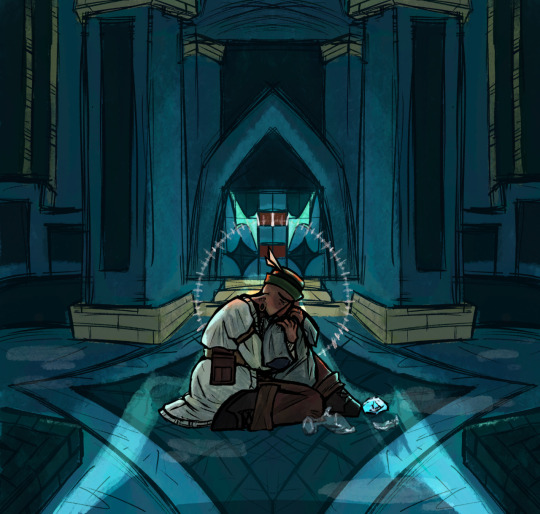
#minecraft story mode#mcsm#mcsm nurm#nurm mcsm#Clemont_ine#On a lighter note#Headcannon that Sammy and Nurm used to be best friends when they were like.. 14#Sammy used to visit the village Nurm lived in frequently and they would explore the forests surrounding it#Unknown to the other villagers ofc I feel like they aren't chill with their kids just leaving the village without supervision lol#And as they got older it turned into having picnics in caves and on cliffs n places Nurm finds#And having very juicy gossip sessions together about stuff happening in their different settlements#I have so many Nurm headcannons it's wild BRO#N e ways my exams start tomorrow morning so my disappearance starts soon#I have ENGLISH first#I hate English#UGH#Did this instead of studying#Guys drawing Nurm will help me pass the exam trust (I am so cooked)
93 notes
·
View notes
Text
Crisis of the family in n25 (Part 1)
The case of the Daughter’s talent erasing the Father.
Right from the very prologue, Nīgo's story presents us with the idea that Kanade’s family life has been obliterated— with that of her father’s hospitalization and her mother’s demise. The literal, physical absence of her parents serves to map her (more abstract) experience of child abuse through neglect into something visually concrete, as well as highlighting the precarity of her position as a child within the private (heterosexual) couple-based family.
Categories in crisis.
The segments in the main story detailing Kanade’s backstory center her relationship with her father, apparently long after her mother has passed away. Mr. Yoisaki’s status as a widowed freelancer complicates his position in relation to hegemonic masculinity[1]: while he still is the ultimate authority of his household and carries the responsibility of financially maintaining it as the head of the family, he goes from the very image of success— being a heterosexual, married man who’s the sole provider for his family to a certain degree of financial security (if we’re to judge by his equipment)— to a single father struggling to both secure work and successfully complete his client’s requests. As a freelance composer, his ability as a Father is predicated on his talent, and his struggle for this talent to cover his family’s needs threatens his masculinity.
Even after becoming a widow, Mr. Yoisaki rarely participates in domestic life due to work commitments— “the couple-based heterosexual household (is) built upon a gendered division of tasks, not least via the naturalization of particularly intensive mothering[2]”. The gap in reproductive labor (in the form of caretaking and housework) left by his wife’s demise then falls onto his middle-schooler daughter to fulfill. Kanade’s efforts underline her quality as a child: her attempts at cooking involve using pre-made ingredients and food from the convenience store, evidencing her status as a beginner cook. Her efforts to ensure her father’s well-being through cooking and cleaning, monitoring his needs are met and tending to his dejected moods often are politely declined and/or ignored. Even though she’s taking on the (invisible) labor a wife would undertake, she has no real way to influence her father or affect their family life. Furthermore, in the absence of her mother, there is no one left to ensure Kanade’s own needs are met, and she will often spend long periods of time ignored by her father and trying to come up with ways to earn his attention and love.
The place of a Daughter.
The ideal of the family promises the “grasping at a chance of guaranteed belonging, trust, recognition, and fulfillment[3].” This promise keeps Kanade and her Father motivated to continue their beleaguered maintenance of their household. For Mr. Yoisaki, to secure his place in the world as a parenting man that provides for his family and wisely guides and nurtures Kanade; his role as a Father is meant to secure him love, care and fulfillment. For Kanade as a Daughter, to have her material needs provided for and her future potential properly guided and eventually realized. Familial love is supposed to instill in her a sense of security in her place in the world and her agency in it.
What we see in the time the main story takes place is quite literally the opposite: her parents’ literal absence means that she will often neglect herself through denying herself food and rest for as long as possible, not to mention the fact she's a hikikomori whose only source of companionship are her online friends. She is single-mindedly dedicating all her energy and resources to redeem her existence through “creating music that can save anyone.” This attitude didn't originate from her Father's hospitalization, however. During the flashback segments, Kanade is weighted down by the sense she's burdensome: after all, she is the reason her father has to work himself so hard (nearly to the point of karōshi). So, she attempts to ease the burden she represents through being a dutiful daughter dedicated to caring for him and to her studies; she feels responsible for his happiness as the sole other member of their household. Post-hospitalization, she's haunted by the fact she is the reason he can no longer enjoy music (untrue), that she has killed his passion and reason d'etre, robbed him of his place in the world. Rather than fulfilling her role as his Daughter to ensure his happiness and fulfillment, she has failed and made him miserable.
Kanade’s status as a virtually parentless hikikomori highlights two things: 1. The precarity of children's position within the private household, and 2. The untenability of the Family Ideal. With regard to the former, one only needs to remember that there aren’t viable structural alternatives to child care, in Japan or globally. When Japanese children cannot be cared for/live with their parents, they’re more likely to end up institutionalized in state child care institutions[4] than to be fostered or adopted (98% of adoptions in Japan involve adult men)[5]. This is because “parental rights trump those of the child’s even when there is evidence to suggest the child is being abused or neglected by their parents(...);”[6] “parents prefer ‘to have their child placed in an institution than they are for the child to be fostered or adopted…as it allows them [children] to maintain a link with birth parents’.” This facilitates the parent to disengage from “the stresses of child-rearing without giving up their child or their legal rights over their child.[7]” So even in the case of Mr. Yosiaki being unable to care for Kanade due his hospitalization, it’s considered preferable for him to retain custody of her; Kanade’s living situation as a child that lives completely alone with no one to care for her represents the reality of many neglected, virtually parentless children.
(On this topic, the only thing that prevents Kanade from being homeless or institutionalized is the narrative convenience of having someone covering her expenses so that she can remain in her family residence. I might be the only one who cares about this, but I do wonder if it’ll come up more in detail eventually. Also, for more information on a contemporary issue with regards the structural lack of support for neglected and abused children, check this article on Toyoko children. Abusive or neglectful families, bullying and harassment, impossibly high academic expectations, are all considered to be the shared causes behind the phenomena of Toyoko children and hikikomori).
Having it all.
“The hegemonic cultural ideal of the man as husband, father, and provider (...) has traditionally been embodied in the image of the daikokubashira— literally the central pillar of a house, but applied metonymically to the male breadwinner “supporting” the household. (...) (This) ideology (...) defines and determines hegemonic masculinity primarily through work.(...) This notion (can impart) a sense of strength, empowerment and achievement to (...) masculine self-esteem.(...) The “fundamental” qualifications for shakaijin masculinity—becoming a daikokubashira, (are) supporting and looking after a family.”[8]
Even though Mr. Yoisaki’s position as a freelance composer, an artisan with no regular, full-time work hours, complicates his engagement to hegemonic masculinity, that his sense of self and achievement is predicated on his ability to complete his work is undeniable:
Mr. Yoisaki’s diary: “30th. I won the competition. But it seems that I’m not entirely happy about it. It was Kanade’s phrase that was highly evaluated. It’s her song. I cannot say it’s mine.”
His growing discontent over his (in)ability to secure and complete work is not solely predicated on practical concerns about securing their livelihood, but on the growing disruption of his sense of self and his certainty in his masculinity; his confidence on his talent becomes eroded:
Mr. Yoisaki’s diary: “They all laugh that the music I make belongs to the past. Even though it was so refined in that commercial, they say. What am I missing?”
This insecurity is what sparks his jealousy over his daughter’s talent. While he does not express his feelings directly to her, they drive his need to reaffirm and express his ego through his music— and his long hours at work. Despite being a freelancer that, in theory, can define his own working hours since he’s not bound by any company, he still pulls in the typical salaryman work schedule in order to validate his own sense of masculine identity, nearly driving himself to an early grave. However, upon being confronted with the enormity of Kanade’s talent through her gift to him, he becomes convinced he has no place in the present, and like his daughter, loses his sense of place in the world:
Mr. Yoisaki’s diary: “8th. Kanade gave me a song as a gift. Now I finally know. What is missing in my song. Why they laugh that my music is old-fashioned. What I create is merely an imitation of music I heard in the past. But Kanade’s music is different. It touches the hearts of the people who live in the present.”
However, despite his engagement with his own masculinity being very in line with trying to fulfill the image of the daikokubashira, he’s far from the image of the typical domineering father[9]. He shows himself gentle and supportive of Kanade whenever they speak, in spite of his insecurities. His diary confirms his commitment to looking after her despite the sacrifices to his ego this signifies:
Mr. Yoisaki’s diary: “But I still must keep on creating. To make a living. And for the sake of Kanade. I must create music that makes money. Yet is that… the music I want that makes someone happy?”
Even if his words try to establish his daughter, his family, as his reason to continue living, this falls in line with Ueno’s statement “that even today, some men mistake money and success at work for love for their family”[10] (and given Kanade’s grandma ends up supporting all of her expenses after his collapse, it further cements the ego component to his financial struggles). This inability to successfully negotiate his embodiment of the daikokubashira ideal and a redefinition of his masculinity to be more centered around being a Nurturing Father is what drives him into a nervous crisis where his poor health ultimately catches up to him. Narratively, his stasis is portrayed through his partially-amnesiac, convalescing state in which he can only remain himself through limited, sparse recollection of Kanade (and I have to wonder if the resolution —or lack thereof— to his identity crisis will play a role in the climax of Kanade’s own conflicted identity).
"In Everything for Everyone, Abdelhadi explains how (...) “you were supposed to still do all the things everyone was going while also raising the kid or kids, and everyone kind of questioned your work if it wasn’t 100-percent true. If you couldn’t do it all or have it all—which no one could.”[11] This passage captures the heart of the conflict in the Yosiaki household— that is that the couple-based family unit is “overburdened with work and worry about financial security and children’s unfolding lives[12]”, and such an overwhelming amount of labor and needs easily overtook both Father and Daughter’s capacities.
[1] “(Ryōta) is depicted as successful, ambitious and accomplished: an architect at a Tokyo firm, he leads a large team and works long hours. (...) The film establishes the Nonomiya family as a model of conventional gender roles and relations, within which the father rarely participates in domestic life due to work commitments while the mother takes the majority of responsibility for childcare and housework (...). Ryōta is also portrayed as an embodiment of the hegemonic model of masculinity in Japan, the salaryman: the heterosexual, married, white-collar office worker.” Christie Barber, 2018, ‘Beyond the absent father stereotype: Representations of parenting men and their families in contemporary Japanese film’. in Fabienne Darling-Wold (ed), Routledge Handbook of Japanese Media, pp 230.
[2] Sarah Brouillete (2023), Domestic Heteropessimism, as accessed in 06/01/2025 https://post45.org/2023/07/domestic-heteropessimism/
[3] Brouillete (2023)
[4] Alyssa Pearl Fusek (2018a), Life in Limbo: How Japan is Failing its Institutionalized Children. Unseen Japan, 2018. As accessed on 06/01/2025.
[5] Alyssa Peark Fusek(2018b), Why do Adult Adoptions Abound in Japan’s Business World? Unseen Japan, 2018. As accessed on 06/01/2025.
[6] Fusek (2018a).
[7] Idem
[8] Dasgupta, Romit, 2005, ‘Salarymen doing straight: Heterosexual men and the dynamics of gender conformity’, in M. McLelland and R. Dasgupta (eds), Genders, transgenders and sexualities in Japan, pp168,170-171
[9] “Ryōta’s conversations with Keita recurrently consist of instructions or admonishments about such things as table manners or learning piano—- an expression of Ryōta’s general judgement that Keita is unable to meet his expectations and therefore deficient. In these depictions, Ryōta conforms to a model of masculinity that Michele Adams and Scott Coltrane (2005) argue demands that a man not only be in a position of authority and responsibility, but also autonomous and uninvolved with his family.” Barber (2018)
[10] Quoted in: Gordon Matthews, 2003, ‘Can ‘a real man’ live for his family?: ikigai and masculinity in today’s Japan’ in James E. Roberson and Nobue Suzuki (eds), Men and masculities in Contemporary Japan: Dislocating the salaryman doxa, pp 110.
[11] Quoted in Brouillete (2023)
[12] Brouillete (2023).
#posted it bc jt was driving me crazy to still have it in the back of my mind as something 'pending' lol#might revisit it when I get to Kanade’s first event lol#note: I'm in the middle of the picnic event with Ena and Mzk lol#mfw I started writing this after seeing her backstory bc it was bonkers lol babbling about their place in the world like they were Insights#ans then knd straight up just said it when talking to mfy smdh I was a bit irritated but it also meant I was right so lol#anyway.#project sekai#kanade yoisaki
22 notes
·
View notes
Text
Rewatching H2o rn and tbh all I wish for is a summer like theirs.










#h2o just add water#h2oedit#h2odelirious#h2o mermaid#rikki chadwick#emma gilbert#cleo sertori#h2o jaw#mako mermaids#aquamarine#mermaids#summer#summertime#picnic#spring#tropical#walk#girlblogging#coquette#tumblr girls#lana del rey#lana del ray aka lizzy grant#dollette#mermaid#merfolk#mermaid art#merman#girls just want to have fun#girls being girls#girls who like girls
105 notes
·
View notes
Text
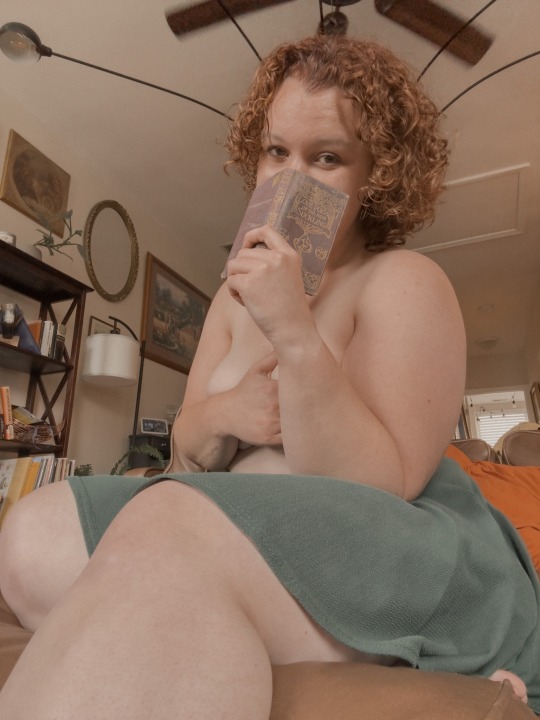

sir john what
#hehe i think i’m funny#who wants to go on a picnic and read love poems to each other#+ then suck on some tiddies#i def read most of the poems in this book i promise it’s not just a prop and ya girl can read#did u guys know i love green#i feel like it’s almost fall vibes + i’m v v excited#curly + curvy#i would wear a bra but i don’t want to#if u read the tags this far u have a crush on me sorry we have to be lovers now#😘😘#biblically accurate asteroid
202 notes
·
View notes
Text
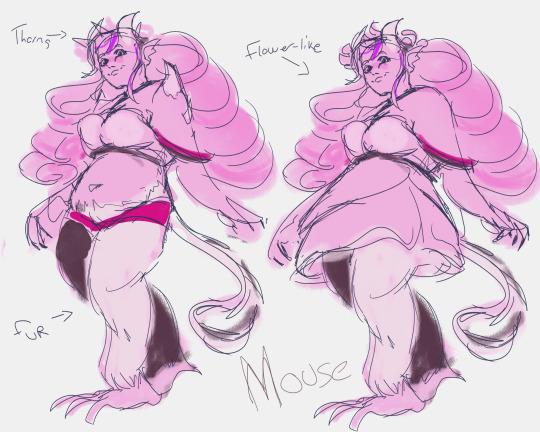
shoots her with creature beam !!! i think qmouse can shapeshift so actually i can draw her however but i thought it would be fun to give her some extra demon features
#there's no reason both dont have the shoulder spikes except that i realized i wanted them After i already copied over the sketch#qsmp ironmouse#ive never drawn digitigrade legs before but that is what those are supposed to be#she's just so fluffy its hard to tell#i think she's physically v strong too catch that demon picking up Em and carrying her around literally all day no problem#pick up all of Em's moms too go for a fun picnic#the flowers thing is just because i added some flowers to the top of her head and then i couldnt let go of it#WHISKERS I SHOULDVE GIVEN HER WHISKERS#LIKE AN ACTUAL MOUSE THAT WOULDVE BEEN CUTE#next time maybe next time#shape sketches
108 notes
·
View notes
Note
Can you please draw Edgar and Johnny stargazing or something like that
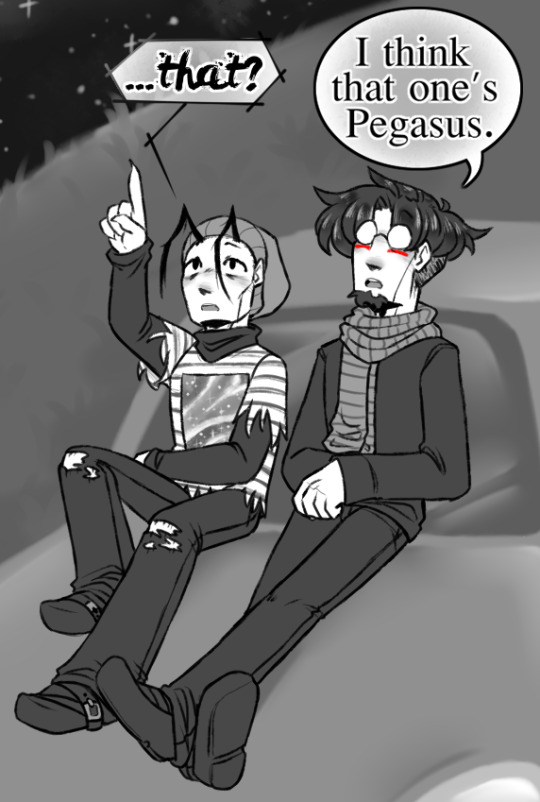
Day 8 - Stargazing
#My art#Requestober#Vargas#Nny#Edgar#I actually went and looked up what constellations are most visible around this time of year lol#I've never gone looking for Pegasus :0 I wonder how much we can see from here#Gotta be a clear night for it! Chilly#So cold that their noses have gone red haha - they're all bundled up but that car hood has to be freezing#I super didn't want to draw a car so I mostly cheated lol ♪ It's close enough!#I could've drawn them on a late-night picnic I guess but them laying on the hood of the car is just the Most Correct y'know?#They're gonna be frozen solid once they're done lol#Oh no however will they warm up lol#That said they're not even touching while sitting out here haha ♪ Nny doesn't like it! His arm is fully over his waist!#Did Nny have the beanie or did he borrow it? Who's to say#Edgar would have a matching scarf to go with his favourite shirt tho he's a dork like that <3#Same reason he'd know which constellation Nny's pointing at like that - bookish nerd ♥#Gosh this one was close to being posted outside of the usual 2:30 time! Hopefully that won't be a theme#Wish me luck ♫
139 notes
·
View notes
Text
i feel like an absolute clown when i explain to folks that while yes, i DO casually cosplay as my favorite characters and adopt much of their vernacular and prepare food inspired by their diets and listen to music they enjoy and adjust much of my daily routine to accommodate the hyperfixation, i don’t kin them. i’m just absorbing their power into my own being. this is how i become stronger
#but tbh having such strong hyperfixes has exposed me to so many things i never would have discovered on my own#realizing i love country music. realizing i love to wear skirts / dresses#realizing lots of things about my personal preferences in general. and adjusting my lifestyle accordingly#it’s so… enlightening. to become obsessed with The Character#gear diary#anyway all of this is to flex that i had a picnic at the park dressed like wander today#i even prepared the prophesied mustard + mayo sandwiches#life is good. life is really just good
22 notes
·
View notes
Text
Ok but why is Natsuki the only character to get one pair of casual clothes. Like her Sayori and Yuri get their weekend outfits but those two also get another outfit in extra artwork (the overalls and the black dress) and while Monika gets nothing in game her twitter gives her both her white dress and sweater outfits. So everyone gets like an indoor and outdoor outfit but Natsuki apparently owns nothing else and just wears a shirt skirt combo forever. She is the universe’s least favourite child just give her something please
#I’m not counting the Halloween or anniversary arts those are special occasions#I don’t think I missed anything though#like in the picnic art they gave everyone new outfits but they specifically didn’t change natsuki’s and just used her weekend outfit#it feels kinda intentional does she just not own anything else#like whether it’s outdoor clothes or stuff she’d wear inside the house they had multiple opportunities to show both but she wears one outfit#and that one tweet where her and Yuri bake a cake they specifically change her outfits in between pics but not Natsuki I’m not insane#I feel like I’m making a conspiracy but I don’t know why it’s like this#it’s weird trying to understand her fashion sense too cause it’s like the only reference we have to what she wears normally#I’m half convinced she actually can’t afford any other clothes but since they’re fun promo arts in the side storyverse they don’t address it#and that’s also weird because I don’t think she’s that poor especially in the side stories she could afford at least one other shirt#or maybe she just really likes that one fit#ddlc#doki doki literature club#tempestmothtalk
37 notes
·
View notes
Text

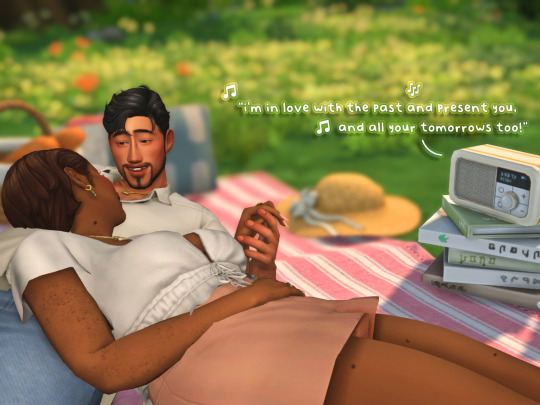
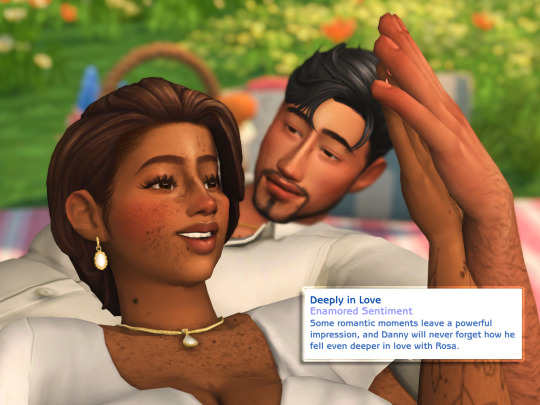








"I will die a better man with you in my life / I can't wait to tell the world that you're my wife!" (♪)
#ts4 gameplay#sims 4 gameplay#postcard legacy challenge#IM IN LOVE WITH EVERYTHING ABOUT YOU ALL THE OLD AND ALL THE NEW ‼️ YOU KEEP GETTING BETTER AND BETTER 🎤🎤🔊🔊🗣️‼️#PLEASE PLEASE LISTEN TO THE SONG‼️‼️#this is literally their song like im foaming at the mouth you have no idea#my babies are engaged and i was actually fr crying 🦔 dont look at me#danny booo ‼️‼️🍅🍅 cornball cornball. how you gonna prepare a romantic picnic date and propose on love day.....CORNY*#*bullying my sims as a sign of affection 🦔🫰🏽#danny’s sister terra’s watching juliette and she’s probably teaching her how to cuss#he prepared everything they ate that day and absolutely refused to let rosa in the kitchen#he was probably even more nervous preparing the sweets than he was for the actual proposal#with the love of his life being a baker he was a little flustered about the taste but he did just fine 🥺#postcard: gen2#queue#sim: rosa han#sim: danny avagyan
329 notes
·
View notes